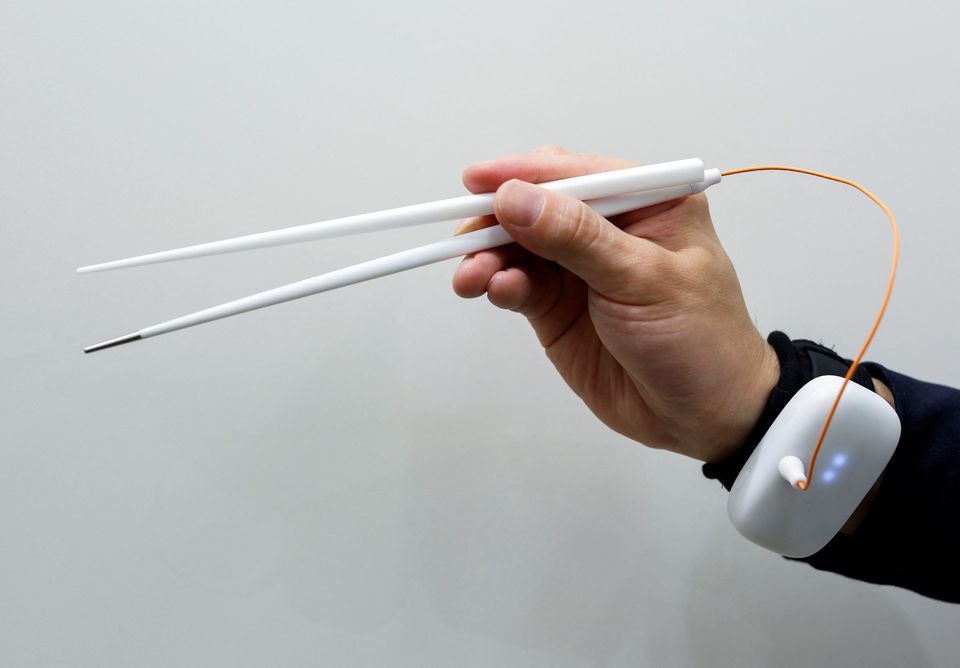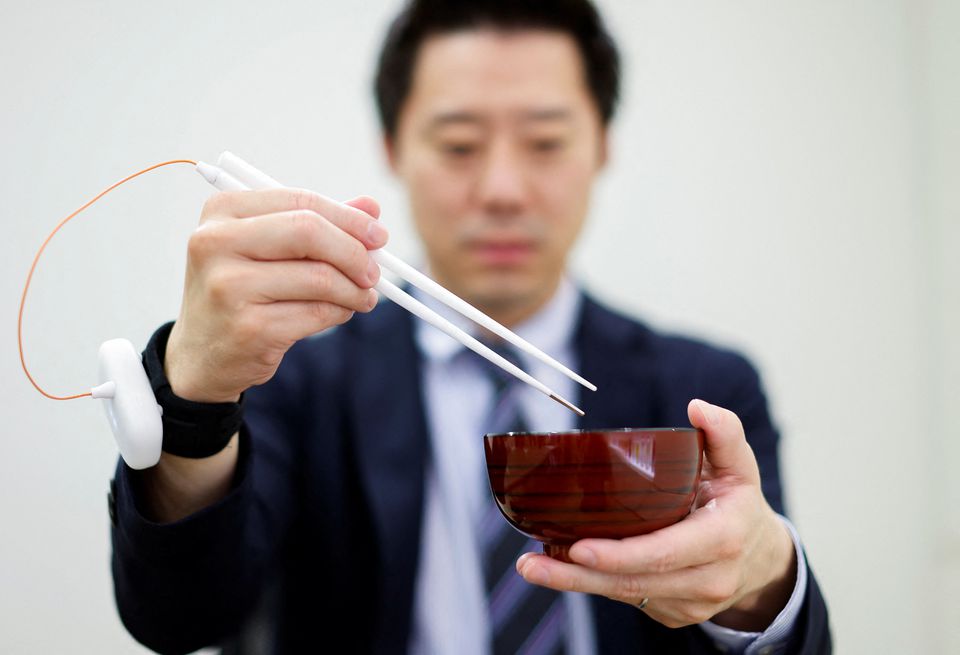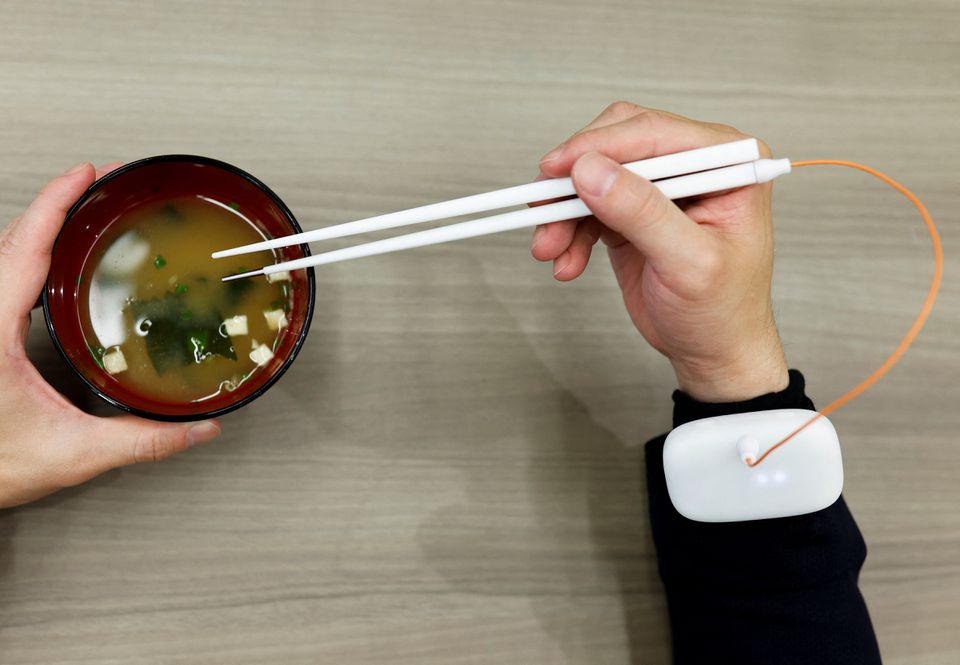TOKYO -- Japanese researchers have developed computerised chopsticks that enhance salty tastes, potentially helping those who need to reduce sodium in their diets.
Co-developed by Meiji University professor Homei Miyashita and beverage maker Kirin Holdings Co., the chopsticks enhance tastes using electrical stimulation and a mini-computer worn on a wristband.
The device uses a weak electrical current to transmit sodium ions from food, through the chopsticks, to the mouth where they create a sense of saltiness, said Miyashita.
"As a result, the salty taste enhances 1.5 times," he said.
 |
| An employee of Kirin Holdings demonstrates chopsticks that can enhance food taste using an electrical stimulation waveform that was jointly developed by the company and Meiji University's School of Science and Technology Professor Homei Miyashita, in Tokyo, Japan April 15, 2022. Photo: Reuters |
Miyashita and his lab have explored various ways that technology can interact with and stimulate human sensory experiences. He's also developed a lickable TV screen that can imitate various food flavours.
The taste-enhancing chopsticks may have particular relevance in Japan, where the traditional diet favours salty tastes.
The average Japanese adult consumes about 10 grams of salt per day, double the amount recommended by the World Health Organisation.
 |
| An employee of Kirin Holdings demonstrates chopsticks that can enhance food taste using an electrical stimulation waveform that was jointly developed by the company and Meiji University's School of Science and Technology Professor Homei Miyashita, in Tokyo, Japan April 15, 2022. Photo: Reuters |
Excess sodium intake is related to increased incidence of high blood pressure, strokes and other ailments.
"To prevent these diseases, we need to reduce the amount of salt we take," said Kirin researcher Ai Sato.
"If we try to avoid taking less salt in a conventional way, we would need to endure the pain of cutting our favourite food from our diet, or endure eating bland food."
Miyashita and Kirin are refining their chopsticks prototype and hope to commercialise them as early as next year.






















































